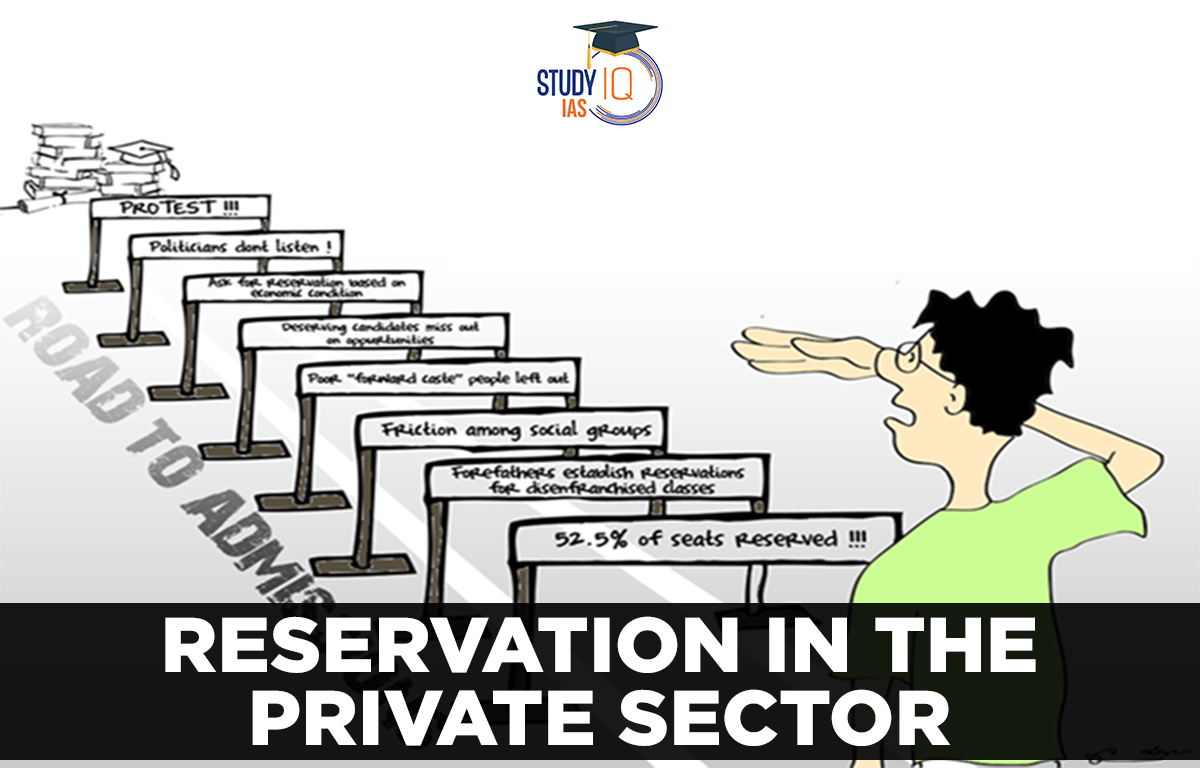Table of Contents
Context: Haryana has been witnessing a decline in new investment projects due to enactment of a law that reserved 75% of private sector jobs for local people of the state.
Haryana State Employment of Local Candidates Act, 2020
- Post enactment: Haryana has been witnessing less share of new investment projects in India that touched a six-year low of 1.06% in 2022-23, down sharply from almost 3% in 2021.
- The decline in fresh projects in Haryana coincides with its enactment of Haryana State Employment of Local Candidates Act, 2020 that reserved 75% of private sector jobs with monthly salaries up to Rs 30,000 for local people.
- Eligibility: All private entities considered as “employers” in the State fall under the ambit of the law, meaning it will apply to all companies, trusts, societies, partnerships and limited liability partnerships.
- Constitutional basis: While Article 15(4) and Article15(5) enable the State to make special provisions for the advancement of socially and educationally backward communities including through reserving seats in educational institutions, these must promote affirmative action, or to achieve substantive equality for those who are unequal.
Reservation
- Reservation is an affirmative action used to combat socio – economic discrimination.
- Reservation was used as a way to uplift the social and educationally disadvantaged people.
- The system of reservation existed in India, during the rule of British as well. At present, the provisions for reservation in India are limited to the public sector.
- Private sector: In 2020, the Government of Karnataka approved a new Industrial strategy (2020 – 2025). The plan intends to provide Kannada people with at least 70% employment in local jobs.
- In July 2019, the Andhra Pradesh government passed a law to provide for 75% reservation to locals in industries or factories.
- Recently, the Haryana Government also had passed the controversial State law which provided 75% reservations in new jobs in Haryana to local candidates.
Why is Local Reservation in Private Sector Needed?
- Shrinking Job Opportunities: Governments have failed to generate enough job opportunities in recent years. Also LPG reforms have lowered the number of public sector job opportunities. Therefore, employment in private sector is being seen as important to prevent locals from becoming unemployed.
- Migration: Local reservation will discourage the influx of migrants seeking low paid jobs and consequently, will help decrease the dependence of businesses on migrant workers.
- Responsibility of Private Sector: The Government holds a legitimate right to ask the private sector to share the burden of providing employment by complying with the reservation policy since private industries use public infrastructure in many ways.
- Familiarity with Local Conditions: Hiring locals who are familiar with the terrain and language is critical in customer facing roles.
- Boost State GDP: Reduced absenteeism can help in boosting productivity which in turn will boost state growth.
- Agrarian Distress: The agriculture sector across India is going through a great amount of distress, hence the local people want to move away from it and seek local jobs.
- Decrease in Crime Rate: Increasing job opportunities will provide for meaningful engagement to youths and lead to decrease in crime rates.
- Achieve Equality: Local reservation will help in achieving substantial equality, i.e., it will help in fulfilling the objective of our preamble of achieving equality for all citizens.
What are Issues with Local Reservation in Private Jobs?
- Violates Fundamental rights: The Act which provides for preference in jobs to local candidates domiciled in a State is in contravention of Article 19 (1)(g) and Article 19 (2).
- Under Article 19(1)(g), all citizens have a fundamental right to practice any profession, or to carry on any occupation, trade or business as a fundamental right.
- Article 19(2) provides for reasonable restrictions but reservations in private employment are not covered by any of the reasonable restrictions except remotely “in the interests of the general public” as mentioned in Article 19(6).
- State Governments Lack Authority: The State Governments lack the requisite authority to pass such a law as the Constitution allows only the Parliament to pass a law prescribing reservation of seats under Article 16(3) of the Constitution.
- Domicile Criteria May be Unconstitutional: The recent Acts passed for providing local reservation is based only on domicile.
- The Supreme Court has held that reservation in employment based solely on domicile violates Article 14 (equality before law) and Article 16(2) of the Constitution.
- Fuels Sons-of-the-Soil Theory: The ‘Son of the soil’ theory puts forward the idea of reservation based on regionalism.
- Reservation law based on domicile law will fuel such theories across States and in the long run destabilise the foundations of Indian democracy i.e. ‘Unity in diversity’.
- Detrimental to Competitiveness: Placing constraints on businesses in hiring may lead to an adverse effect on them as:
- Adequate skilled domestic labour may not be available which may hurt their efficiency and competitiveness, and
- They may not be able to employ the best candidates.
- Stifles the Labour Market: Such reservation may push businesses to migrate, as their skilled workforce is not sufficiently ‘local’.
- Revival of License Raj: Many experts believe that allowing reservations in private sector would be akin to nationalization of private sector and it would result in revival of license-raj.
- Migration of industries: The present provision of providing local reservation does not address the core concerns of skewed geographical development in India which leads investors to prefer the States where a governance ecosystem is already in place.
Way Forward
- Domicile-based reservation promotes equality if we view it from the perspective of unemployed people and the concerned State as it has the potential to reduce crimes, ensure good public health, remove poverty and maintain equality in the society.
- The only challenge which domicile-based reservation can face is the extent of the reservation, which depends upon the need and current state of the residents of that particular State.
- Hence, the Government and legislature must carefully study the intersection of law and business and the consequent levels of industry’s engagement in the State because reservation affects productivity and industry competitiveness.


 UPPSC LT Grade Admit Card 2025 Out @upps...
UPPSC LT Grade Admit Card 2025 Out @upps...
 UNESCO Global Network of Learning Cities...
UNESCO Global Network of Learning Cities...
 National Livestock Mission (NLM): Object...
National Livestock Mission (NLM): Object...

























